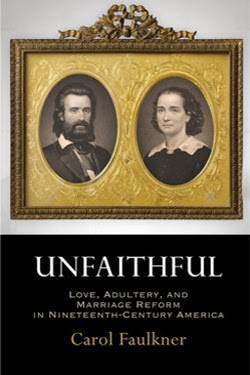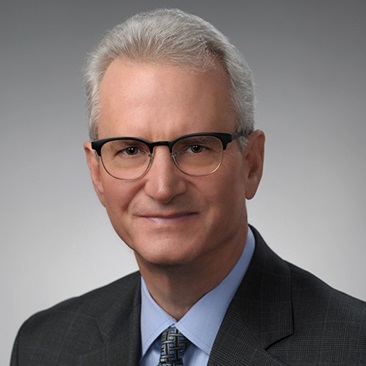Unfaithful: Love, Adultery, and Marriage Reform in Nineteenth-Century America
Carol Faulkner
University of Pennsylvania Press, December 2019

Unfaithful: Love, Adultery, and Marriage Reform in Nineteenth-Century America, a new book by Associate Dean and Professor of History Carol Faulkner, was published in September by the University of Pennsylvania Press.
In the book, Faulkner traces how social reformers between 1830 and 1880 shifted notions of adultery and marriage away from patriarchal, legal frameworks, reconceptualizing marriage as a voluntary relationship focused on love and individual choice. For these reformers, she argues, adultery was a metaphor that allowed them to express their experiences within loveless marriages — a perspective that shifted attitudes toward marriage and advanced important conversations concerning sexual rights and divorce across the United States. These 19th century criticisms of marriage have continued a longer transformation in marital and gender relations that continues to this day.
Faulkner studies women, gender, sexuality, and social movements in 19th century America. Among six authored or edited books, and numerous chapters concerning the role of women in 19th century activism, she is author of Lucretia Mott's Heresy: Abolition and Women's Rights in Nineteenth-Century America and Women's Radical Reconstruction: The Freedmen's Aid Movement, both also published by the University of Pennsylvania Press. She is particularly well known for her research concerning Mott and is frequently invited to speak on topics including women’s suffrage, abolition, and feminism in the early United States.
From the Publisher
In her 1855 fictionalized autobiography, Mary Gove Nichols told the story of her emancipation from her first unhappy marriage, during which her husband controlled her body, her labor, and her daughter. Rather than the more familiar metaphor of prostitution, Nichols used adultery to define loveless marriages as a betrayal of the self, a consequence far more serious than the violation of a legal contract. Nichols was not alone.
In "Unfaithful," Professor Carol Faulkner places this view of adultery at the center of nineteenth-century efforts to redefine marriage as a voluntary relationship in which love alone determined fidelity. After the Revolution, Americans understood adultery as a sin against God and a crime against the people. A betrayal of marriage vows, adultery was a cause for divorce in most states as well as a basis for civil suits.
Faulkner depicts an array of nineteenth-century social reformers who challenged the restrictive legal institution of marriage, redefining adultery as a matter of individual choice and love. She traces the beginning of this redefinition of adultery to the evangelical ferment of the 1830s and 1840s, when perfectionists like John Humphrey Noyes, founder of the Oneida Community, concluded that marriage obstructed the individual's relationship to God.
In the 1840s and 1850s, spiritualist, feminist, and free love critics of marriage fueled a growing debate over adultery and marriage by emphasizing true love and consent. After the Civil War, activists turned the act of adultery into a form of civil disobedience, culminating in Victoria Woodhull's publicly charging the Reverend Henry Ward Beecher with marital infidelity.
"Unfaithful" explores how nineteenth-century reformers mobilized both the metaphor and the act of adultery to redefine marriage between 1830 and 1880 and the ways in which their criticisms of the legal institution contributed to a larger transformation of marital and gender relations that continues to this day.
Related News
Research

Nov 11, 2024
School News

Oct 25, 2024

Oct 21, 2024
School News

Oct 11, 2024